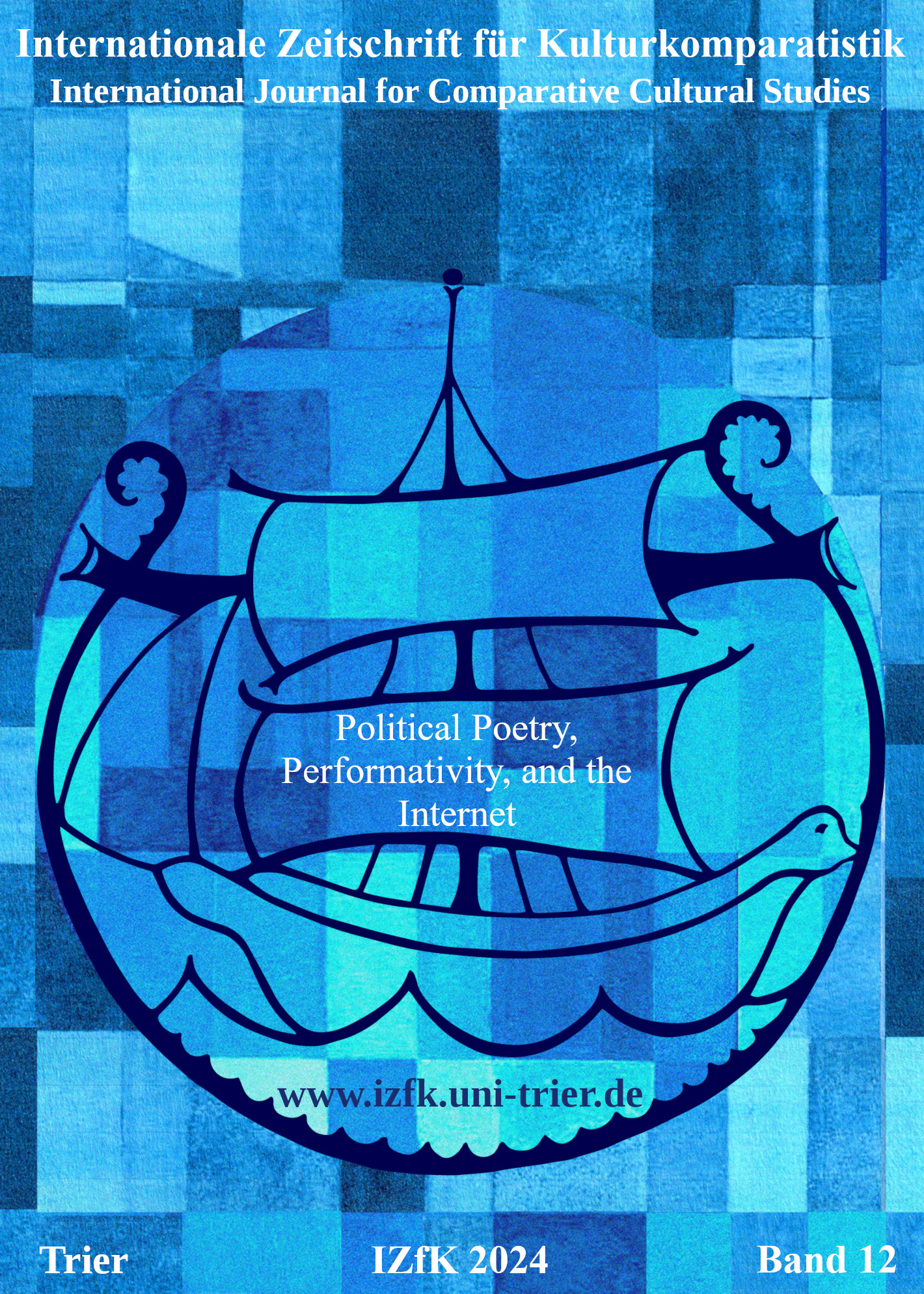Performative Translation: Latvia’s Orbita Group as a Post-Monolingual Heterotopia
Hauptsächlicher Artikelinhalt
Abstract
The Orbita multimedia and poetry collective, based in Riga, Latvia, has succeeded in making poetry written in Russian an integral part of the Latvian cultural and literary scene, despite the burden borne by Russian language and culture in this society as a result of still unsettled and contested histories of Russian and Soviet imperial domination and cultural imperialism. The article explains this achievement as resulting from the Orbita collective’s practices of “performative translation,” which make translation a highly visible and central element of various forms of artistic activity, including multimedia installations, book publishing, video poetry, public performance, proper, and more. In traditional cultural configurations, translation is thought to transfer the essential features or the spirit of a text from one literary language to another in a manner that makes possible the translation’s readers’ sense of unmediated contact with the original. Such a conception of translation supports the monolingual paradigm – the cultural ideology of separate and distinct national languages – and the political actualities to which it corresponds. Orbita’s practices of performative translation, in contrast, create a multilingual heterotopia in which the actuality of translation as mediation is rendered visible, the boundedness and distinctiveness of national literary languages is undermined, and the social necessity and ubiquity of acts of translation is brought to the fore.


